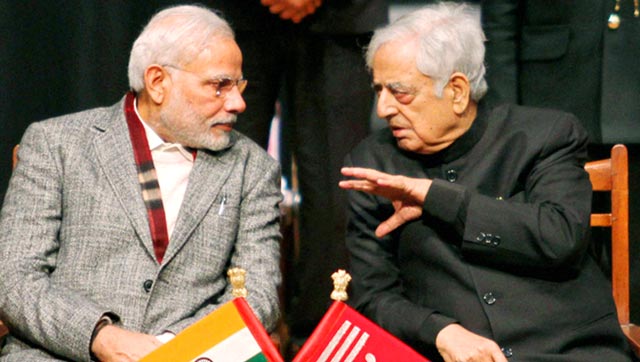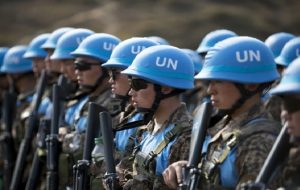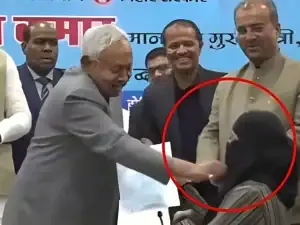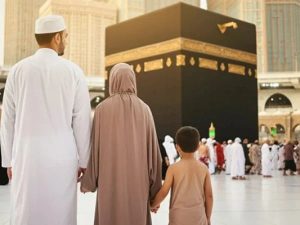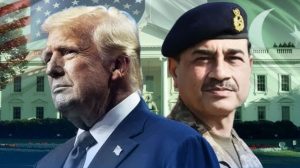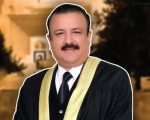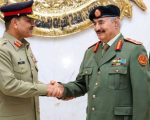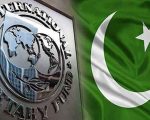NEW DELHI (Web Desk) – Jammu and Kashmir Sunday got a coalition government as PDP leader Mufti Mohammad Sayeed was sworn in as the chief minister, giving the BJP its first shot at power in the state after two-month-long negotiations saw both the parties climb down from stated positions on key issues.
With Sayeed, 24 ministers, including former separatist Sajjad Lone, took oath of office during the ceremony attended by Indian Prime Minister Narendra Modi and BJP chief Amit Shah. Nirmal Singh of the BJP will be the deputy CM.
The alliance between the two parties which have been bitter rivals and hold divergent views on Kashmir will be a tightrope walk, and the first sign of it came immediately after the swearing-in.
Talking to media, Sayeed credited “people from across the border”, separatist , Hurriyat Conference and militants with smooth conduct of polls.
“People from across the border allowed conducive atmosphere during elections. My humble submission is peaceful elections were not possible if they had done something… They allowed this democratic process to go ahead,” the 79-year-old People’s Democratic Party leader said at the press conference.
“I want to say this on record and I have told this to the Prime Minister that we must credit the Hurriyat, militant outfits for the conduct of assembly elections,” he said, with deputy CM Singh sitting by his side.
As the remarks drew angry reactions, the BJP stepped in. “The Election Commission and security agencies who believe in the Indian constitution should be credited for the peaceful and highly successful assembly elections,” BJP secretary Shrikant Sharma said in Delhi.
During the negotiations, the PDP had called for talks with Pakistan but the common minimum programme, or the “agenda for alliance”, that was released after the swearing-in was ambiguous on it.
As reported by the Hindustan Times first, the agenda dropped contentious issues like PDP’s self-rule demand and BJP’s demand to abrogate Article 370.
The BJP, the junior partner in the coalition, has agreed to status quo on Article 370 that grants the border state a special status and a separate constitution to which all its ministers also swore allegiance.
The PDP was for revoking the Armed Forces (Special Powers) Act that gives sweeping search powers to security forces. The agenda, however, said the government would review security situation to examine need of all the special laws.
The two parties held talks for almost two months to iron out differences after voters didn’t give majority to any of the four main players in the 87-member assembly the results for which were declared on December 23.
The PDP emerged as the single-largest party with 28 seats, most of them in Muslim majority Valley while the BJP got 25 seats in the Hindu-dominated Jammu.
The two sides, said sources, worked on the list of ministers till 3am Sunday. Separatist-turned-politician Sajjad Lone was one of the last to make to the list of cabinet ministers dominated by the PDP.
The Peoples Conference leader took oath from the BJP quota.
This is the second time Sayeed leads a coalition government. He took power in 2002, heading a PDP-Congress alliance, for three years. Unlike other states, Jammu and Kashmir assembly has a six-year term.

